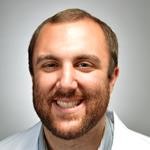The year 2020 has been a watershed moment for all of us. As fourth-year medical students navigated their way through an unprecedented pandemic, they were also busy applying for residencies. This months-long process is traditionally marked with anxiety, excitement, and self-reflection. Our Council of Student Members share their experiences and advice from the past year.
Primary Care Track

Menaka Dhingra
Cooper Medical School of Rowan University
I am interested in primary care (PC) and wanted to share some of my experiences applying to PC tracks this cycle. These tracks are incredibly varied and unique, ranging from having a few additional outpatient blocks and didactics to being entirely separate tracks with their own curricular structure and rotations. Each structure has its own pros and cons, so it's important to use the interview experience to figure out what will work best for you and your needs. It's common to apply to both categorical and PC tracks, which can help you get a better sense of how integrated the PC track is with the categorical track and how much they differ. Applying to both tracks will not affect how you are ranked in either.
Some things to look for when applying are how the outpatient experiences are structured, whether there are additional clinic sites available, what elective opportunities there are, and what the curriculum looks like. If you're interested in additional fields, such as addiction medicine, global health, refugee health, and research, it's important to make sure the program has opportunities to gain exposure and skills in these areas. For example, I'm interested in policy and health disparities research, so I made sure to ask about that in interviews. Lastly, one of the common questions in interviews is whether applying to a PC track will preclude you from applying to a specialty. This is almost always not the case, although you should look at program match lists to get an idea of what specialties previous residents have been able to match into. You can get great general internal medicine training in categorical tracks; however, if you're interested in more outpatient experiences or a more holistic curriculum, I highly recommend looking into PC tracks!
Research Track

Emily Rose
Case Western Reserve University
Research has been an important part of my medical training thus far. I was looking for a residency program where I could continue to foster that interest. I knew I wanted to attend an academic program with significant research activity. There are many different ways in which internal medicine residency programs incorporate research. I began my search by learning about these different methods. Many internal medicine programs have research tracks that are often a few months of elective time dedicated to research and some accompanying education opportunities. A few places that are funded by an NIH R38 offer an additional year of research during residency. There are also physician scientist training programs that generally follow the ABIM Physician Scientist research pathway. This pathway allows a trainee to complete internal medicine residency training in 2 years before continuing to complete extra research years and clinical fellowship training if desired. For someone interested in research, I recommend considering research opportunities in residency.
Practice and Career Development

Bradley Pfeifer
Creighton University School of Medicine
I am more interested in the outpatient clinic world than the inpatient floors; thus, asking faculty about unique outpatient clinic practices was a big deal during interviews. Asking “What are each faculty member's clinical areas of excellence?” was the best way I received a solid list of training opportunities (acupuncture, addiction management and Suboxone training, integrative medicine, and global health, to name a few). Additionally, I wanted to know if I would be prepared to manage an outpatient practice when I graduated from residency. This was a harder question to frame, and I recommend asking where and what kind of practice the program's graduates take their first job after residency and/or if they took leadership positions. I also found it beneficial to ask if any residents have explored special interests or “tracks” during training and if lectures were done on practice management. Lastly, I want to reiterate that program faculty and residents are excited to answer questions and make sure you like the fit and feel of their program!
Making Rank List

Dylan Koundakjian
University of Vermont College of Medicine
Making it through the first ever virtual residency interview season was quite an accomplishment. There were a lot of unknowns, such as how well interpersonal connection translates over Zoom or how many plants should be in my background to convey maximum personality. At the end, the time came to sort out everything I had learned. I took notes during every interview—not so much to remember the nuts and bolts but more to convey my sense of the people and program at that time. In the end, I didn't base my rank list on who I thought had the better call schedule but instead on where I could recall feeling that gut emotion of belonging the most. It's a leap of faith! However, I bet other class years felt the same, even with in-person interviews. What got me through was remembering to trust myself; seek advice; and always keep in mind that no matter where I end up, I'm going to do the best I can in pursuing my dream of being an internal medicine physician.

Natalie Santa-Pinter
University of Oklahoma College of Medicine
I'm a type-A, organized, meticulous person (sound familiar?). To make my rank list, I utilized two items: an Excel spreadsheet to objectively assign points to things that were important to me (such as location, program size, fellowships, leadership, cost of living, and gut feeling) and a notebook where I wrote down my thoughts and feelings as well as answers to my questions during my interview days. Internally, I knew which programs were already at the top of my list based on how excited and nervous I was for those interviews compared with others and how I felt after interacting with the residents (these are great “gut feelings”). Following your interview, tally up your points for each program and see what your list looks like. If you're not happy, maybe that means you value a small program over, say, free parking. If that's the case, assign more points to the former and fewer points to the latter and the top of your list will be full of programs with a smaller size.
Helpful Tips:
- If a program chair makes an appearance on interview day, take this as a really good sign that they are involved in the process and their program. (You don't need to think too hard about it if they are not present because this could be for a variety of reasons, but it is always a plus when they are there!)
- Pay close attention to how residents interact with each other (you can still get a feel for this virtually!). Do they have sidebar conversations, joke with each other, and know each other? This was a big factor in how I ranked a program.
- Do residents have kids? Regardless of whether you personally are interested in this, it can tell you a lot about the stress level of residents and how supported they feel.
At the end of the day, ranking programs should be a fun and dynamic process. Enjoy the journey, be grateful for the opportunities, and remember you are one step closer to your dream wherever you end up!
Interview Tips/Virtual Interview Experience

Emily Lee
Virginia Commonwealth University School of Medicinee
Virtual interviews this year were not the interview trail experience applicants had expected. Many of us had looked forward to traveling to different places, enjoying being wined and dined by programs, and meeting a few new people along the way! However, given the circumstances, fourth-year medical students and graduates all over the world experienced programs from afar, often in the comfort of our own homes. Here are a few tips I wanted to pass on.
Setup: Make sure you are at eye level with your camera. You don't want to be looking up or down at your interviewers. The biggest thing is to limit clutter in your background. Many applicants had plants, bookshelves, artwork they made or collected, or displays of their hobbies in the background. Personally, I just used a corner in my room with a clear wall. The interviewers are trying to get to know you and not your background, so do not stress too much about it. Whatever you do have in your background, be ready to talk about it when asked.
Interview: Practice. Practice. Practice. I used the frequently asked questions from AAMC. They look like a lot on first glance; however, many of them are very similar, and they just prepare you for similar questions asked in different ways. Make sure you have three to five patient stories you can readily discuss to address behavioral questions—these can range from a medically interesting case, a mistake you made that impacted patient care and what you learned, or a challenging patient encounter. Make sure that you have stories outside of clinical medicine as well, including any unique experiences during your gap years before medical school or during preclinical years or anything outside of medicine or related to your hobbies you did during medical school. These stories all influence who you have become, and your interviewers want to know you beyond the application you submitted!
Always come prepared with questions. You should prepare the standard questions of what changes the program expects over the next few years and how receptive the program is to resident feedback. Be sure to also prepare a few targeted questions for the program. For example, is there a teaching or research track you are interested in, are you curious about the patient population that they care for, or is there a specific clinic you want to be involved in?
Interviews are definitely nerve-racking, especially when you start out. My biggest tip is to have a routine for yourself. Drink your cup of coffee if you need it, watch a short video, or listen to some music before interviews. Calm your nerves, and just be yourself! Let yourself shine!

